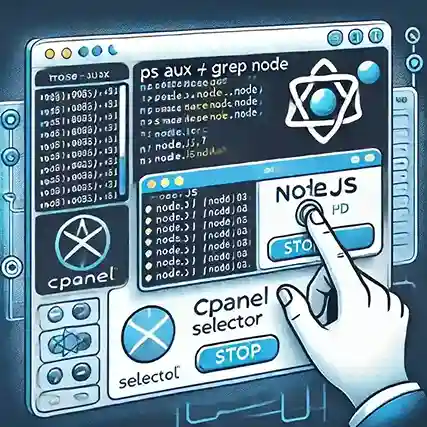How to kill node js process in cpanel
admin
How kill node js process in cpanel #cPanel #stop Node.js app in cPanel #troubleshooting #Node.js cPanel"
How to Safely End Node.js Processes in cPanel Without Root Access
Managing Node.js applications in cPanel is straightforward, but there are times when you may need to terminate a running process, such as during troubleshooting or deployment. Here’s how to do it step by step:
Step 1: Access cPanel Terminal or SSH
- Log in to your cPanel account.
- Use the Terminal tool (if available) or access your server via SSH.
Step 2: Find the Node.js Process
Run the following command to list Node.js processes:
ps aux | grep node
Look for the relevant process ID (PID) in the output.
Step 3: Kill the Process
Use the kill command followed by the PID to terminate the process:
Replace <PID> with the actual process ID.
Step 4: Confirm Termination
Run the ps aux | grep node command again to ensure the process is no longer running.
Using cPanel's Node.js Manager
If your hosting provider supports it, you can also manage Node.js applications directly using the Node.js Selector in cPanel:
- Navigate to the Setup Node.js App section.
- Locate your application under "Current Applications."
- Click Stop to terminate the process.
Tips for Managing Node.js Processes
- Always back up your application before making changes.
- Avoid killing critical processes unrelated to your application.
- Check error logs to identify why the process needs termination.
With these steps, you can effectively manage and terminate Node.js processes in cPanel, ensuring your application runs smoothly.

Conclusion
Effectively managing Node.js processes in cPanel is crucial for maintaining smooth application performance. Whether through the terminal or the Node.js Selector, you can easily identify and terminate processes to resolve issues or deploy updates. Always verify process termination and use error logs to troubleshoot underlying problems. By following these steps, you ensure that your Node.js applications remain stable and responsive. For seamless management, stay familiar with cPanel tools and prioritize safe practices like regular backups.